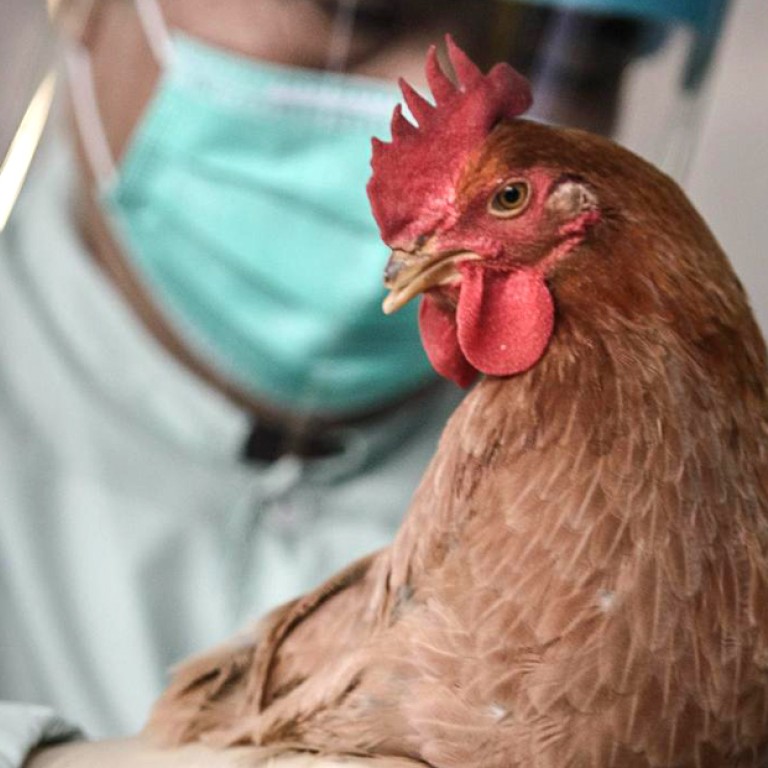
New tests on chickens to boost bird-flu defences
Blood-serum tests will complement DNA probes by showing whether chickens without the virus have been previously exposed
Additional tests will be conducted on imported and local chickens from Friday in an effort to boost Hong Kong's defences against the potentially fatal H7N9 strain of bird flu.
The health minister said yesterday that blood-serum tests would be introduced in addition to DNA tests on live chickens.
Chicken traders and health experts have been calling for the additional tests as a further safeguard against the disease which has sickened 20 people in Guangdong. Two Hongkongers have died after being infected.
Secretary for Food and Health Dr Ko Wing-man said the decision to introduce serum tests at the border and on Hong Kong farms followed talks with experts and mainland authorities.
Ko told legislators the two tests showed different things. "A positive result [in serum tests] shows that the poultry was previously infected. It does not mean that it is carrying the bird flu virus at the time of the serum test. To target whether individual poultry has bird flu that can infect us, we are mainly using the current H7 DNA test," he said.
Chen Yuansheng, director of the Guangdong Provincial Health and Family Planning Commission, said at the Guangdong provincial legislature's annual plenum yesterday that discussions had not started between Hong Kong and the mainland, but Ko was adamant that consensus had been reached.
Also on Friday, supplies will resume from two Shenzhen farms where exports were suspended after Hong Kong's first H7N9 human case last month.
At present, DNA samples are taken from 60 out of every batch of 1,000 incoming chickens before and after they enter Hong Kong. From Friday, samples for serum tests will also be taken at the Man Kam To border crossing. If any chicken in a batch tests positive for the virus, an additional 120 samples for DNA tests will be taken from the batch, Ko said.
If any of the DNA tests were positive the whole batch of poultry would be destroyed, live poultry imports would be suspended for 21 days and the Cheung Sha Wan wholesale poultry market closed for the same period.
University of Hong Kong microbiologist Professor Yuen Kwok-yung said a positive serum test from a chicken implied that the farm it came from had been exposed to H7N9. Even when DNA test results were negative, more sampling was needed to ensure that a consignment was really safe. If the tests were negative in the additional samples it would be unreasonable to ban that consignment. But before further imports could be allowed the supplying farm should be investigated to find out why its birds had been exposed to the virus.
Chen said while there had been 20 cases of H7N9 in Guangdong since August, there was no risk of a large-scale outbreak.
Meanwhile, the Centre for Food Safety yesterday banned imports of poultry products from South Korea's North Jeolla province after an outbreak of H5N1 bird flu on a duck farm.

